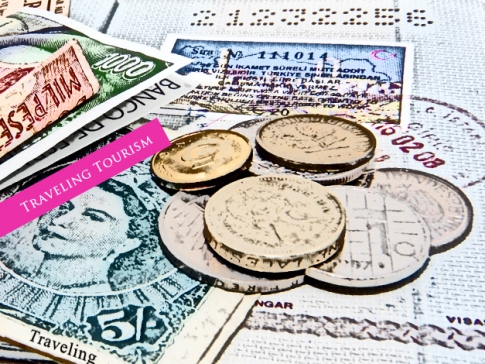I asked travel writer, Heather Moorhouse, about suddenly becoming rich when visiting places like India and Tonga. She recalled a meeting at a five star Delhi hotel where the prices were comparable to Canadian standards – exorbitantly higher than just outside the hotel’s front door. An Indian graduate student at the meeting refused to order anything on principle: everything was 'overpriced'. ‘I respect her for it,’ said Moorhouse. ‘One cup of coffee would have bought her three meals in other locations.’
When Moorhouse goes to London, however, the roles reverse, with a simple movie ticket running a whopping $20: ‘Someone else was buying, so I didn't know until the deed was done. Had I known, I would have suggested we skip it. Needless to say, we didn't get popcorn. I already have a mortgage.’
Another journalist, who travels with the Formula One circuit, describes going from pauper to prince depending on race destination. ‘The money I have might not be a lot in Western terms, but it is a lot in some of the countries I visit.’ Ever unassuming, she likes to budget the same amount for food as a local. While this may work in Malaysia and India, it doesn’t fly in richer countries. In Abu Dhabi, Dubai, Monaco and Japan her British pounds are stretched to the tearing point: ‘In Abu Dhabi, the locals spend my annual salary on a single night out!’
This is also the case in many emerging economies: ‘In Brazil in 2010 and 2011, I stayed in the same hotel for the same number of nights but the exchange rate meant it cost me £200 more in 2011.
I asked her whether some ways of spending money – such as buying anticuchos for friends and tipping for good service – are better than others. ‘When I went to Japan last October, I made a real effort to spend more than I could afford. While the area I was in hadn't been affected by the tsunami/earthquake/nuclear disaster, the area around the Suzuka Circuit relies heavily on motorsport visitors, and numbers were down. I love Japan so made a few tactical souvenir purchases of items being sold by the Tsunami Relief Fund, ate out every night (not really a hardship!), and made a personally sizeable donation to the relief fund before leaving.’
About tipping etiquette, she says, ‘In some countries, trying to tip a taxi driver leads to hours of confusion. I usually just take the change, get out of the car, hand them a tip through the window and then run away so they can't give it back to me. Many have tried! But if someone's helped me get to the airport in time to make a flight, or has driven me to work when all the trains I was planning on taking have been cancelled, then I'd feel like a heel not rewarding them for their assistance.’
Moorhouse concurs, over-spending in certain situations herself. ‘I’m lucky enough not to have to worry about my next meal,’ she says. ‘So I buy small things that I don't need, tip, lend small amounts knowing I won't get them back, pay for school fees – but it’s about much more than money. I keep in touch. Make connections when I can.’
I don’t regret spending $40 on beef hearts, but would I stick my nose up at a rich tourist in Canada dropping a grand on dinner for four? I wonder if they were bragging or just being generous. The value of money is relative but, if you ask me, winning the exchange rate lottery doesn’t give anyone the right to be a heel. {w}
by Amie Watson

